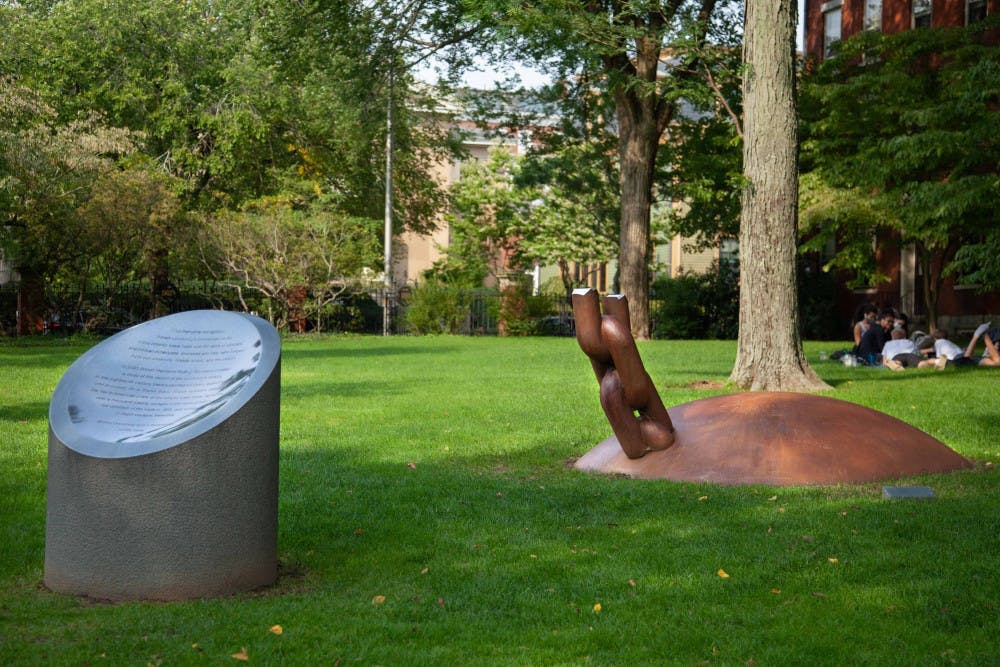The University will rename the Center for the Study of Slavery and Justice in honor of former University President Ruth Simmons, according to a Thursday press release. The news was announced at an event celebrating the center’s 10th anniversary at the Smithsonian Museum of African American History and Culture in Washington, D.C.
Earlier this year, the center also reached a $10 million fundraising goal to create a dedicated endowment, President Christina Paxson P’19 P’MD’20 said in the release.
In 2003, President Simmons directed the University Steering Committee on Slavery and Justice — comprised of students, faculty and staff — to investigate how Brown has historically engaged with slavery and the transatlantic slave trade historically.
Those efforts eventually led to the creation of the CSSJ: In 2006, the committee released their findings in a report detailing “the complicity of many of the University’s founders and benefactors in slavery and the slave trade” as well as recommending steps the University could take to address its past actions.
According to the press release, Simmons’s initiative led the University to make commitments that confronted the “full truth” of its history, including new academic and community engagement initiatives that aimed to promote “greater diversity, equity and inclusion on College Hill and beyond.”
One such commitment was the establishment of the CSSJ in the 2012-13 academic year.
“The thing that is most striking to me about Ruth is that she … is completely unafraid to dig into and answer hard questions,” Paxson told The Herald. “It’s a combination of being really values-driven but also intellectually bold.”
Since its founding, the CSSJ — now the Ruth J. Simmons Center for the Study of Slavery and Justice — has studied slavery from an interdisciplinary lens in addition to leading public programs dedicated to education about slavery, among other initiatives, according to its website.
Simmons said she was “immensely proud” of the work the center has accomplished, and the release noted that she was “surprised and humbled” by the renaming.
“The wide array of research, scholarship and public discourse the center has generated has made it a resource for hundreds of individuals, institutions and nations,” Simmons said in the release. “I hope that it will continue to interrogate the many forms of slavery and exploitation, serving as a continuing resource to those seeking to address historic wrongs.”
Simmons told The Herald that the center aims to interrogate how the status of dominant groups has led to the suppression of other groups, and to demonstrate how institutions can avoid “sinking into that quagmire over time.”
Since the 2006 report and center’s founding, “hundreds of institutions and countries have followed Brown’s example, because it was done in a way that did not strike fear into people,” Simmons noted. Instead, “it has inspired a lot of scholarly work. It has inspired a lot of civic work. It has inspired a lot of discussion of values, and so on,” she added. “What can be more impactful than that?”
Professor Anthony Bogues, director of the CSSJ, said he was excited to pay tribute to Simmons through the renaming, recognizing her foundational role in the center’s work.
“She is a remarkable educator and university administrator,” Bogues said. “She is also a person with very clear ideas — a visionary, in many ways.”
Paxson noted in the press release that the renaming is a testament to Simmons’ “high-impact leadership” throughout the years.
In her interview with The Herald, Paxson expressed her appreciation for the center, noting how it has both broadened its research and made it more accessible.
“It's grounded in really serious, rigorous, historical research,” Paxson told The Herald. “But they’ve been able to take that grounding and then move it into the present.”
As opposed to only orienting the center’s work towards academia, Paxson said aiming toward a wider audience is “a way to take the work of the center and make it publicly visible and accessible.”

Natalie Villacres is a senior staff writer covering the University Hall beat. She is a junior from Queens, New York City, majoring in education and psychology.





